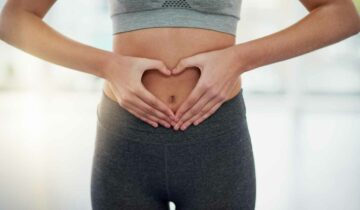It’s such a wonderful, crazy, exciting, nerve-wracking, life changing moment when you find out you are pregnant. Whether you were planning a family or the news comes as a surprise, it’s crucial from this point to consider your health, food and lifestyle choices which are all vital for your growing baby’s development.
NUTRITION
FOOD
From a nutritional point of view, there are certain food, vitamins and minerals which your body will need more of over the next 9 months.
- If you’re not already, up your fruit and vegetable intake to at least 5 portions a day to ensure you are consuming a wide range of nutrients.
- You’ll need at least 2-3 servings of high-quality protein, such as fish, lean meat, pulses, eggs, nuts, tofu and some dairy foods.
- On the subject of fish, it is recommended to eat 2 portions a week as it is packed with vitamin D and omega-3 fatty acids (found in oily fish).
- Enjoy plenty of carbohydrates in the form of pasta, rice, potatoes, quinoa, sweet potatoes and bread. Choose wholegrain varieties for more fibre.
- Including high fibre foods like Linwoods flaxseeds, nuts and seeds, chia seeds and wholegrains in your diet (about 20g a day) can help to maintain a healthy digestion, lower cholesterol and stabilise blood sugar levels.
There is a misconception that you have to eat for two when you’re pregnant (unless you are very active). To avoid unnecessary weight gain, continue eating as normal for the first sixth months, then in the third trimester increase your calorie intake by 200 calories a day.
THINGS TO AVOID
Certain foods should be avoided during pregnancy which could cause harm, including:
- Raw seafood
- Raw or undercooked eggs
- Unpasteurised soft cheese
- Undercooked and cold meats
- Swordfish and tuna
It is advised to limit caffeine to 200 milligrams a day (2 mugs of instant coffee) as it is thought that too much may contribute to a risk of having a low-birth-weight baby. Cut down on tea, cola and energy drinks and switch to decaffeinated coffee, fruit teas, juice and water.
Experts advise to cut out alcohol during pregnancy. Drinking in the first trimester could increase the risk of miscarriage, while later on, regular alcohol consumption could result in problems ranging from learning difficulties to serious birth defects.
VITAMINS & MINERALS
- Calcium – A daily intake of around 1000 milligrams is recommended, equivalent to 3-4 servings of eggs, natural yogurt, salmon, almonds, white beans or green vegetables.
- Iron – Ensure you are hitting 27 milligrams a day (2-3 servings) which can be found in wholegrains, fortified cereals, seafood, lean red meat and green leafy vegetables.
- Vitamin C – Try getting 6-8 milligrams a day which can be found in oranges, peppers, berries, other citrus fruit, tomatoes and kiwi fruit.
SUPPLEMENTS
Taking supplements during pregnancy doesn’t mean they are a substitute for a balanced diet, but can help if you’re unable to eat well or are suffering from sickness. They can help to boost the essential vitamins and minerals listed above, plus it’s worth considering:
- Folic acid (folate) – Helps to reduce the risk of your baby developing defects including spina bifida. Make sure you are taking 400 micrograms a day.
- Vitamin D – Ensure your supplement contains 10 micrograms, as vitamin D is important for your baby’s future bone health.
EXERCISE
I have always been very active, and that hasn’t changed much while I’ve been pregnant (so far). During the first trimester, nausea, sickness and low energy can prevent you from leading an active lifestyle. Therefore it’s important to listen to your body and not push yourself too much.
When you feel well enough, regular exercise can really help you as a mum-to-be. Building up strength, stamina and endurance allows you to cope better with the extra weight and work of labour, plus it makes it easier to get back into shape once your baby is born. Being active can also boost feel-good endorphins and your self-esteem.
Most fitness activities and sports are safe so long as they don’t carry the risk of falls, extra stress on your joints or harm. The best options include:
- Swimming
- Pilates and yoga
- Brisk walking
REST
While it is important to keep active, don’t overwork yourself. High levels of pregnancy hormones are flying around which can make you feel fatigued. Try relaxation techniques like meditation, yoga, deep breathing, stretching and massage, as well as making sure you get enough sleep.






 No products in the cart.
No products in the cart.